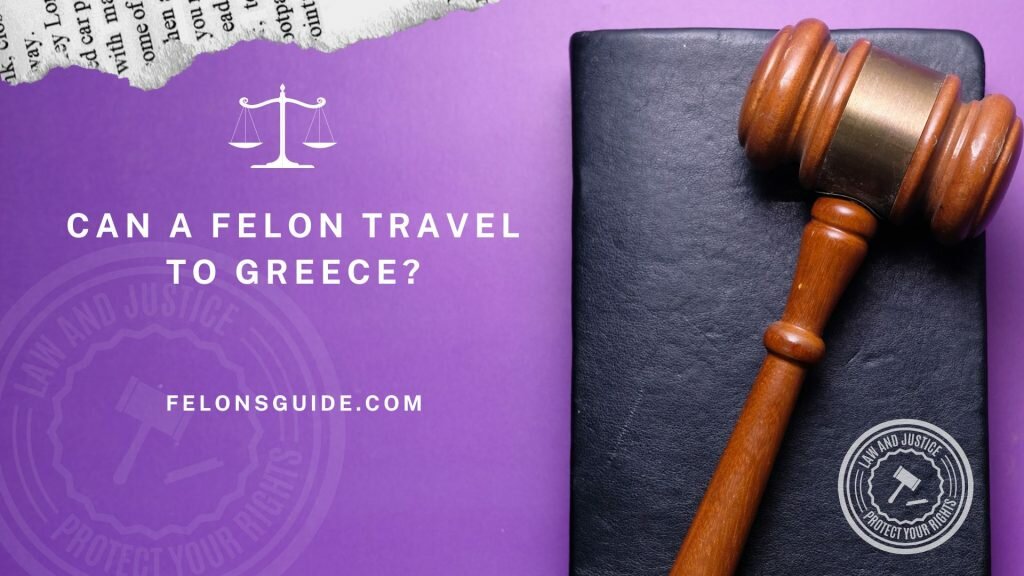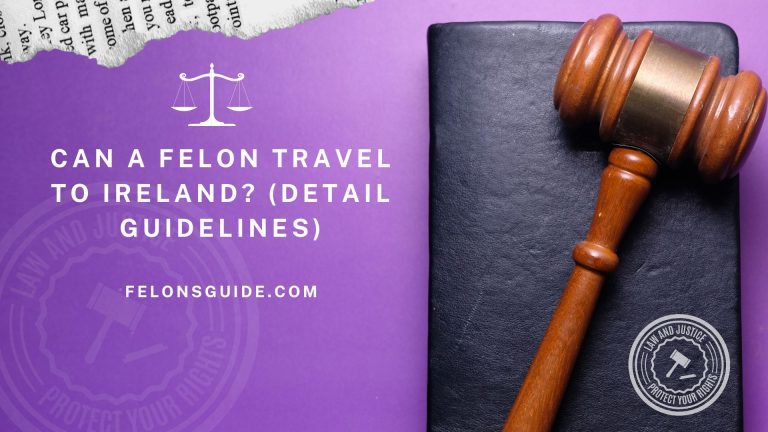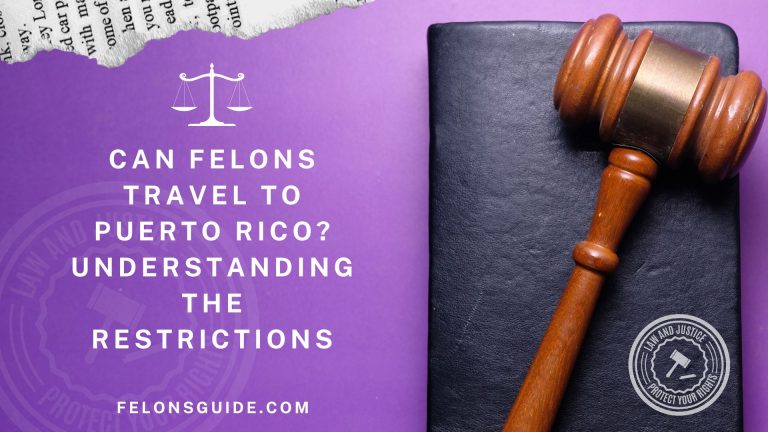Can a Felon Travel to Greece?
Traveling internationally can be an exciting and enriching experience for anyone, but for individuals with a criminal record, it often comes with additional challenges and uncertainties. In this comprehensive guide, we will explore the topic of felons traveling to Greece and provide valuable information and guidance for those who are eager to explore this beautiful Mediterranean country. Whether you have a past conviction or know someone who does, this article aims to shed light on the legal framework, eligibility requirements, rehabilitation options, and practical tips for a smooth journey.
Can a Felon Travel to Greece?
Yes, a felon can travel to Greece. However, eligibility and entry requirements vary depending on individual circumstances, including the nature and severity of the conviction. Thorough research and adherence to Greece’s immigration and visa processes are essential to ensure a smooth travel experience.
Understanding Travel Restrictions for Felons
Before diving into the specifics of traveling to Greece, it’s crucial to understand the general challenges faced by felons when it comes to international travel. Many countries have strict immigration policies and may impose entry restrictions on individuals with criminal records. The severity and nature of the offense, as well as the laws of the destination country, can significantly impact the eligibility to enter. Therefore, thorough research is essential to ensure a hassle-free travel experience.

Traveling to Greece: Legal Framework
Greece, known for its rich history, stunning landscapes, and vibrant culture, welcomes tourists from around the world. However, it is important to familiarize yourself with Greece’s immigration and entry requirements, especially if you have a criminal record. While Greece has its own policies regarding individuals with a criminal history, it is crucial to note that each case is evaluated on an individual basis. This means that the outcome may vary depending on your specific circumstances.
Also Read: Can Felons Travel to Bali? A Comprehensive Guide
Determining Eligibility to Enter Greece
To determine your eligibility to travel to Greece, understanding the visa requirements is crucial. Depending on your country of origin and the duration of your stay, you may need to obtain a visa. Having a criminal record does not automatically disqualify you from obtaining a visa; however, it can impact the decision-making process. The nature and severity of your conviction will be taken into consideration. In complex cases, seeking legal advice or consulting with an immigration attorney is highly recommended.
Rehabilitation and Pardon
Rehabilitation plays a significant role in addressing travel restrictions for felons. In many cases, pursuing a pardon or expungement of your criminal record can greatly improve your travel prospects. It is essential to research the rehabilitation and pardon processes in Greece, if applicable, and understand the steps involved in seeking legal forgiveness. These processes can vary in complexity and duration, so starting early is crucial.
Traveling with a Criminal Record: Preparing for the Journey
To ensure a smooth journey, proper preparation is key. Start by ensuring you have all the necessary documentation, including a valid passport and any required visas. Transparency and honesty during the immigration process are vital. Be prepared to answer questions regarding your criminal record, and always provide truthful information. Additionally, it is essential to have a plan in place to address potential challenges or inquiries at the border, such as carrying any relevant court documents or character references.
Also Read: List of Countries that Don’t Allow Felons in 2023
Resources and Support for Felons Traveling to Greece
Navigating travel restrictions and legal requirements can be overwhelming, but numerous resources are available to assist felons seeking to travel to Greece. Consider exploring government websites for up-to-date information on entry requirements and visa processes. Additionally, seek out support organizations or legal services that specialize in assisting felons with travel-related issues. Contacting the embassy or consulate services of Greece can also provide valuable guidance and answers to specific questions.
Success Stories and Inspirational Experiences
While the journey for felons traveling to Greece may present challenges, it’s important to remember that success is possible. Many individuals have overcome travel restrictions and turned their lives around, embracing opportunities to explore the world. Their stories serve as inspiration and a reminder that with determination, resilience, and adherence to legal requirements, felons can travel and broaden their horizons.
Conclusion
Traveling to Greece as a felon requires careful research, preparation, and an understanding of the legal framework. By familiarizing yourself with Greece’s immigration and entry requirements, determining your eligibility, exploring rehabilitation options, and seeking support when needed, you can embark on a journey that allows you to experience the beauty and culture of this remarkable country. Remember, each case is unique, and seeking professional advice and guidance is crucial to ensure a successful and rewarding travel experience. With proper planning and adherence to legal requirements, a trip to Greece can become a reality for felons seeking to explore the world and create new memories.





